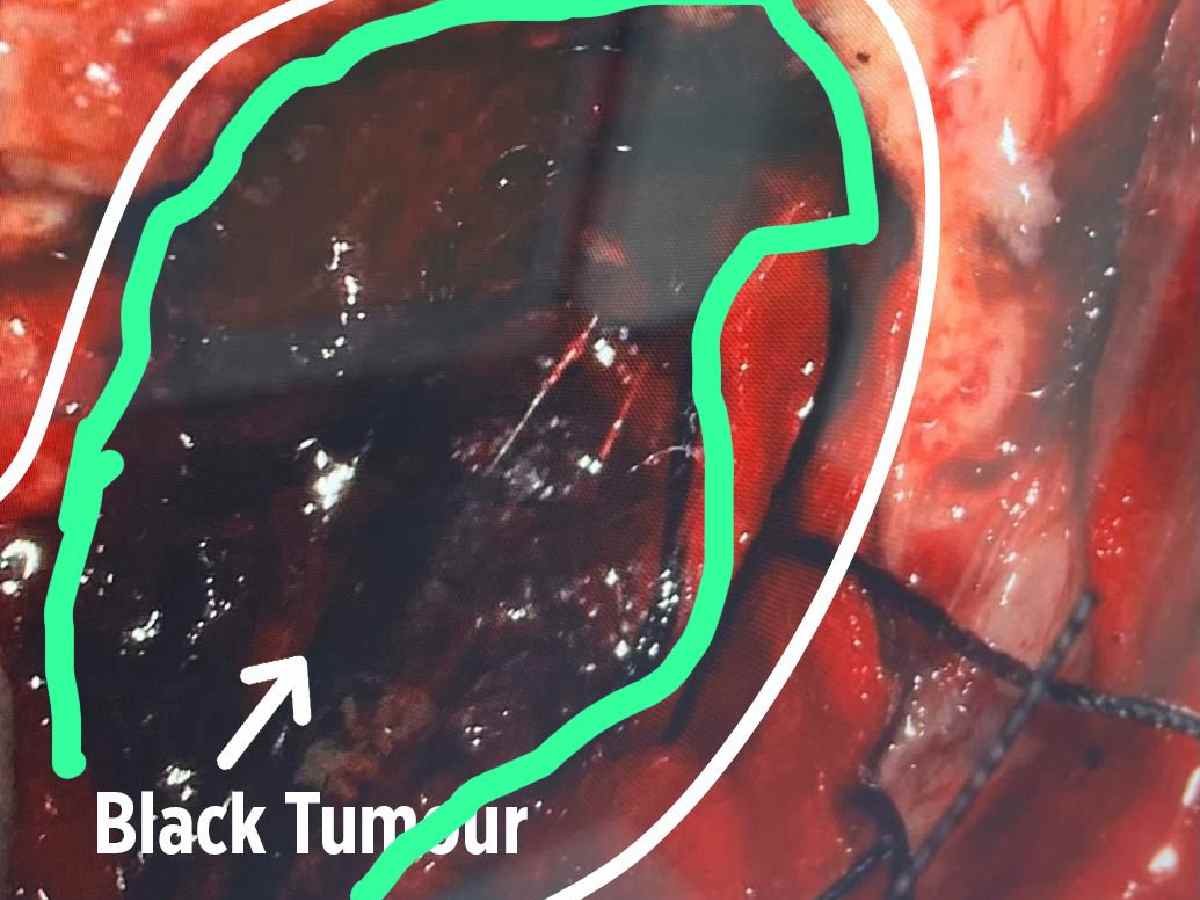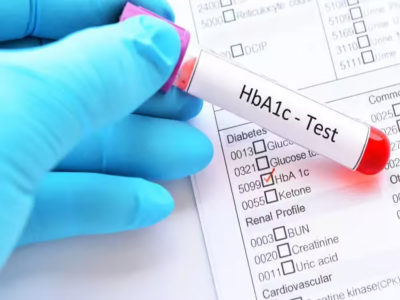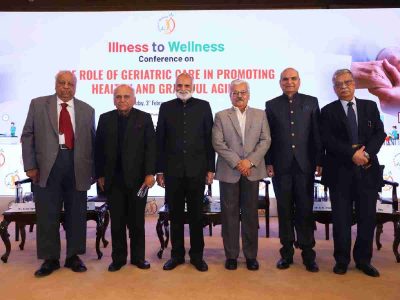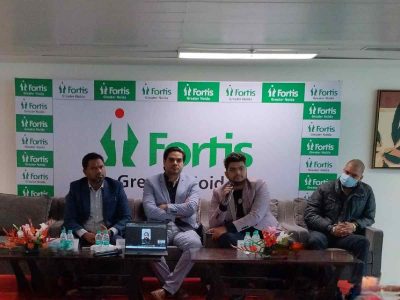Delhi: A rare and complex black brain tumour has been successfully removed from the brain of a 72-year-old woman at Fortis Hospital Delhi’s Shalimar Bagh.
The tumour, which presented unique challenges due to its rare nature and location, was carefully excised without causing any damage to surrounding brain tissues.
The team of doctors, led by Dr Sonal Gupta, Senior Director & HOD Neurosurgery, Fortis Hospital Shalimar Bagh, treated the patient via a complex dual brain surgery.
In October last year, the patient suffered a loss of consciousness with right-sided weakness, for which a CT scan was done in Gwalior, where she was diagnosed with brain haemorrhage.
She was treated conservatively and was gradually recovering.
However, earlier this year, she suffered right-sided paralysis with difficulty in speaking, leaving her bedridden. A repeat CT scan and MRI were done in Gwalior, which revealed a recurrence of brain haemorrhage at the same site and a much larger clot than last time.
Seeking advanced care, the patient was brought to Fortis Shalimar Bagh for an expert opinion. Upon detailed diagnosis, a bleeding tumour on both sides of her brain was diagnosed.
Recognising the urgency and complexity of the case, she was operated on in two stages—first surgery for the left-side tumour, and after 48 hours, the patient was taken up for a second surgery for the tumour in the bone on the right side of her brain. At surgery, the tumour was identified as a rare black tumour (melanoma), which is known to cause bleeding.
The first surgery lasted 9-10 hours, and to manage brain swelling, the patient was kept on a ventilator post-surgery. After both surgeries, a small portion of the tumour within the large vein had to be left behind as opening veins can cause dangerous bleeding and brain swelling. After a month, the patient underwent radiotherapy for the small residual tumour.
Post-surgery, the patient recovered well and is now leading an independent life.
Dr Gupta, Director and HOD of Neurosurgery at Fortis Hospital, Shalimar Bagh, highlighted the exceptional rarity of the case, describing it as a black brain tumour—a condition reported in just 0.5 per 10 million cases annually. The challenges were immense, with the 72-year-old patient requiring two brain surgeries during the same admission.
The surgeries were prolonged, involving significant blood loss, and were further complicated by the patient’s pre-existing condition, which caused spontaneous layer formation in the airway. Following the procedure, bronchoscopic treatment was necessary to manage complications from ventilator use during anaesthesia.
Without timely intervention, the tumour could have been fatal within months. However, with complete therapy, the patient’s five-year survival probability is now 70-80%, and she is recovering well with no paralysis or disabling deficits.
Deepak Narang, Facility Director at Fortis Hospital Shalimar Bagh, explained that the tumour was rare and the surgery particularly challenging due to its location. He commended the medical team, led by Dr Gupta, for handling the case with precision and care. Narang emphasised the importance of accurate diagnosis and effective management strategies, highlighting the hospital’s capability to manage such complex cases successfully.
Also read: Delhi Hospital performs leadless pacemaker implantation to save 74-year-old woman
The 72-year-old patient recounted her journey, stating that she initially visited a hospital in Gwalior, where the tumour was deemed small. However, after her condition failed to improve, she sought a second opinion from Dr Gupta at Fortis Shalimar Bagh, where it was revealed that the tumour was actually large.
Before the surgery, she was entirely dependent on others, unable to manage daily tasks like going to the washroom and experiencing memory loss.
Following the surgery, her health has significantly improved—she can now perform daily activities independently, and her memory is gradually recovering.
She expressed deep gratitude to Dr Gupta and her team for their exceptional care.





